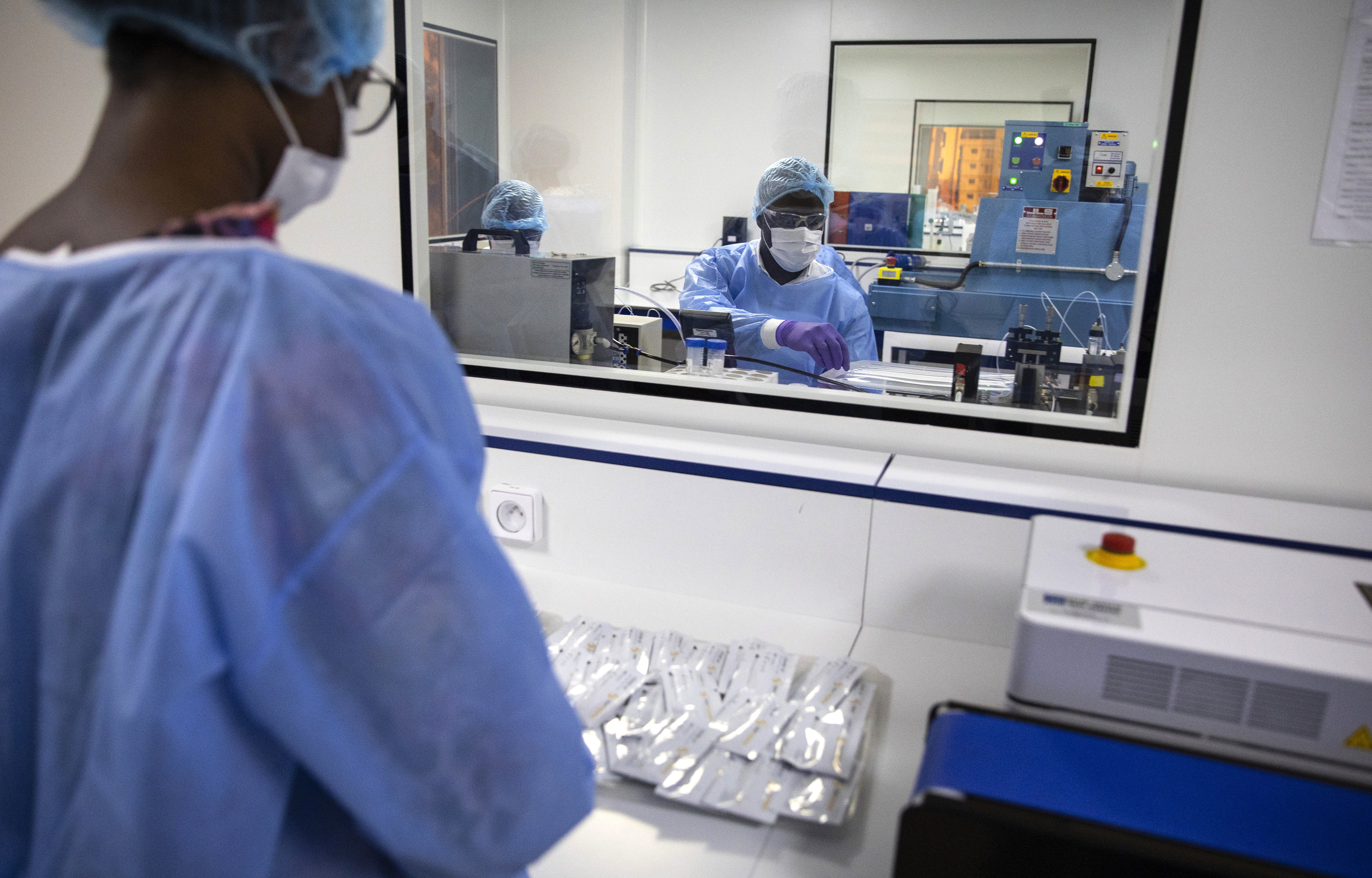Employees in a medical laboratory at the Institut Pasteur, Dakar, Senegal
Copyright© Ute Grabowsky/photothek.net
Worldwide fairness in vaccine production Cooperation between Europe and Africa brings more progress
Development Minister Svenja Schulze said: “Currently, only one per cent of the vaccines being distributed in Africa are actually produced there. That is neither fair nor sustainable. That is why it is a strategic goal of European development policy to end this dependency. The German government is currently contributing together with European partners to the establishment of the technology transfer hub of WHO. This is part of our comprehensive support package toward the development of vaccine production in Africa. If we manage to provide the African continent with high quality vaccines made in Africa, then that will serve as a good insurance against future pandemics and other diseases, too.”
The mRNA technology transfer hub that was set up by the World Health Organization (WHO) and the Medicines Patent Pool (MPP) in South Africa in 2021 is to become a research and training centre for mRNA technology for the whole of Africa and beyond. A few weeks ago, the hub managed to produce a first small amount of mRNA vaccine in the lab. The aim is to expand the manufacturing capacities of countries with low and medium income for producing COVID-19 vaccines in order to improve worldwide access to vaccines. In future, the hub is to also engage in research on other mRNA-based vaccines against diseases such as malaria, tuberculosis, HIV or Ebola.
Alongside the mRNA technology transfer hub in South Africa, which will be developing new mRNA vaccines, “spokes” (cooperation partners for the production and training of staff) will also be receiving support in the form of training and technology packages. The five African partners who were announced by WHO today are Egypt, Kenya, Nigeria, Senegal and Tunisia. Argentina and Brazil had already been selected in September 2021.
The BMZ is making a total of 3 million euros available for the WHO mRNA technology transfer hub in South Africa and is currently looking into ways to provide further support. The funds will be used for field studies on technology needs, market analyses, lab studies to further develop existing (mRNA) technologies, and for the standardisation of processes for quality control. These contributions are part of the German government’s overall support for local vaccines production in Africa for which the German government has committed more than 530 million euros since 2021. With this support the BMZ is helping to create the required conditions for future production in Ghana, Senegal, Rwanda and South Africa – i.e. initial and ongoing training of skilled workers, strengthening regulation and developing infrastructure, such as laboratory equipment, IT and cold chain management.
